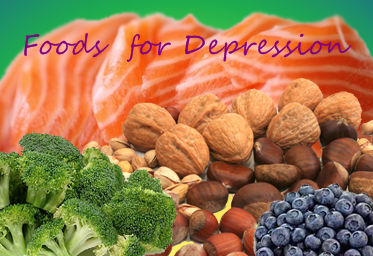Nutrition and Depression Part 1
September 24, 2014 by Dr. Harvey
Filed under Blog
With the recent death of Robin Williams, I wanted to understand the links between proper nutrition and depression. While it has long been known that there are many documented links between nutrition and depression, I wanted to review which specific foods were involved. With this post and with more in the future, let me give you an overview of how proper nutrition can fight depression.
The literature has reviewed many links between a person’s biochemistry and their mood. A person’s emotional state can cause them to skip meals, overeat, or crave certain foods, which can lead to poor food choices. We are all familiar with the concept of comfort food – eating something when you feel depressed, or even the feelings that you get when you eat one of your favorite recipes. (For me, one of my favorite comfort foods are my Grandmother’s crepe style Swedish pancakes). However, certain foods can specifically help with fighting off depression, especially if a person is taking prescription medication for the problem, as some medications can deplete nutrients from the body.
Some example of these nutrients are as follows:
Amino acids and proteins – Consumption of amino acids from proteins in the diet or through supplementation can affect the levels of certain neurotransmitters in the body. For example tryptophan, which is a serotonin precursor can help with inducing sleep and in calming you down. Conversely, some amino acids can aid in the production of neurotransmitters to help stimulate your mental awareness and lift your mood.
Carbohydrates – Many people will eat high glycemic index (GI) simple sugars when they feel depressed (Guilty!). The consumption of carbohydrates releases insulin which not only processes the carbohydrates, but aids in the uptake of tryptophan in your brain. There is evidence that shows that eating lower GI foods can provide a longer lasting impact than higher GI foods do, as the effect of higher GI foods is usually temporary.
I will continue this discussion of this important topic in my next post, so stay tuned!
To Your Health!
Dr. Harvey



